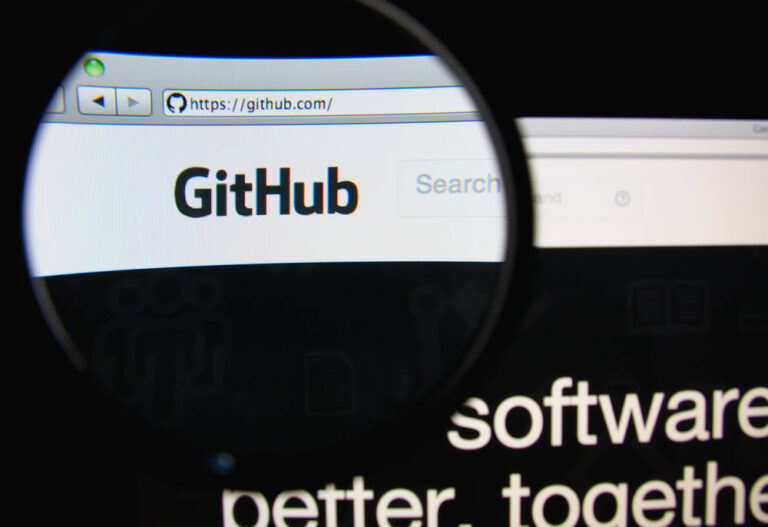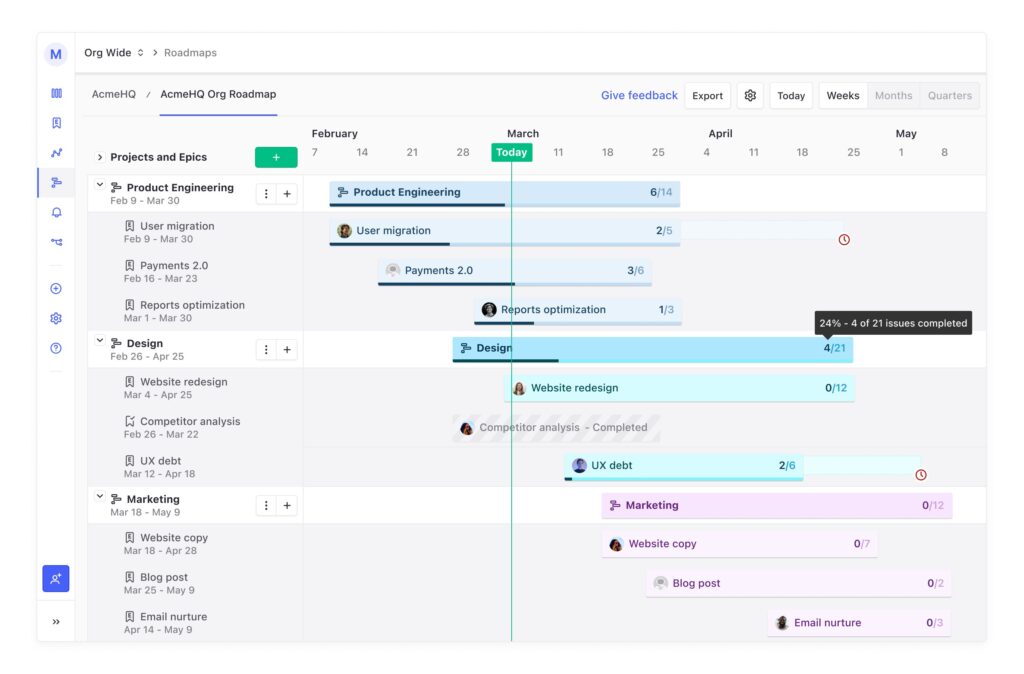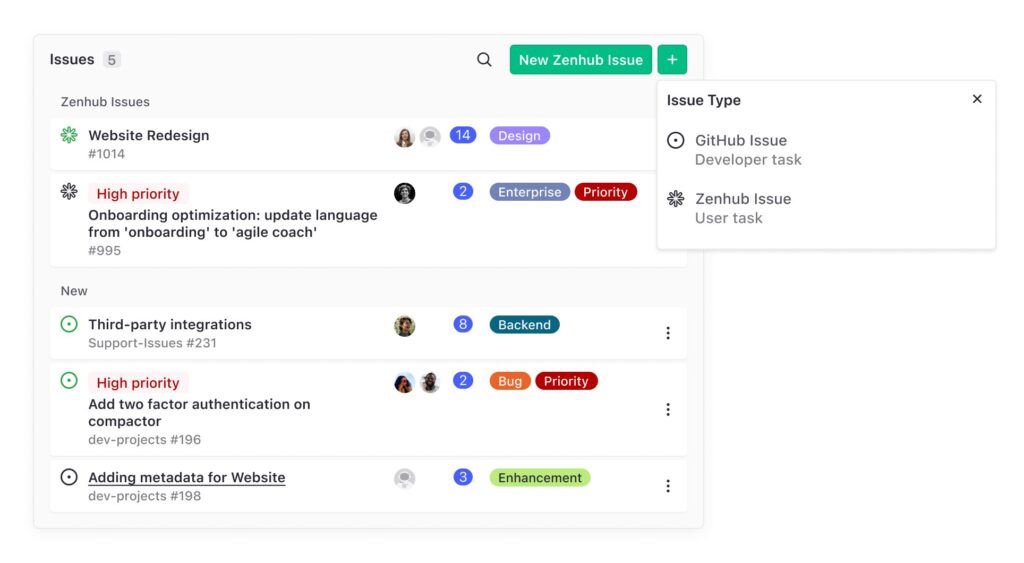
ZenHub, which has built its own project management platform on top of GitHub, has enhanced its issue-tracking support. The company also told us that it hopes to support GitLab in future, having just raised US $10 million in Series A funding.
Microsoft-owned GitHub has grown rapidly in recent years. In January it reported 100 million users, more than three times as many as the 28 million counted when it was acquired in June 2018. ZenHub claims though that the platform is “unapproachable for non-technical team members and external collaborators,” according to a press release today.

Since 2015 ZenHub has offered a project management platform which forms a kind of front-end to GitHub, aiming both to add features and provide a more approachable interface for non-developer users who are part of development teams, such as designers or product managers.
“We were the first external vendor to bring project management into GitHub eight years ago,” co-founder Aaron Upright told DevClass. “GitHub issues were a bit of a chaotic place.” The ZenHub offering injected a task board into the GitHub UI via a Chrome extension. “Our vision was that developers would never have to leave GitHub in order to manage what they were working on,” he added.
The product has evolved since then, with its own platform that no longer requires a browser extension, but remains hooked into GitHub via OAuth permissions. However it is now possible to have ZenHub users who do not themselves have GitHub accounts. “What we’re actually launching on is a way for non-technical teams to collaborate in the same workspace as their developers are without needing access to GitHub,” said Upright.
Another new feature, necessary for this to work, is “a way to create issue types that aren’t backed by GitHub,” Upright told us. “I can create a user story, as an example, that lives entirely inside ZenHub.”

The snag with this approach is that developers who go directly to GitHub cannot see those issues, forcing them to stay in ZenHub if they want to see the whole picture. There is also the matter of linking issues to code, and some of these details are not yet in place. The ability to transform a ZenHub issue into a GitHub issue is something “we’re going to be adding in pretty short order,” Upright assured us.
There is another twist to this, which is that external ZenHub users will be working on GitHub projects without needed GitHub licenses. “Organizations no longer need to pay for GitHub licenses for non-technical team members to be able to collaborate,” says the press release. Upright said that this will enable companies to “cut down on costs,” though one could also argue that using ZenHub as well as GitHub inevitably costs more than using GitHub alone.
With GitHub constantly adding features, how will ZenHub maintain its ability to add value? “We previously used to be the only way to manage projects in GitHub when GitHub didn’t offer any of this functionality themselves. Now that they’re starting to offer more of this functionality in a in a native way,” Upright acknowledged. The new independent ZenHub issues are part an effort to “bring something new to the table,” Upright told us, by “extending the benefits of GitHub beyond just the development team.”
What about moving beyond GitHub to support other platforms, such as GitLab? “We see customers every day that are leaving GitHub to go to GitLab,” Upright said. “We’re going to be deploying some of the funding we just raised … creating a GitLab offering.” He explained that having ZenHub accounts that are not tied to GitHub is a key part of that, in that these accounts are “an entity we now fully control.”
